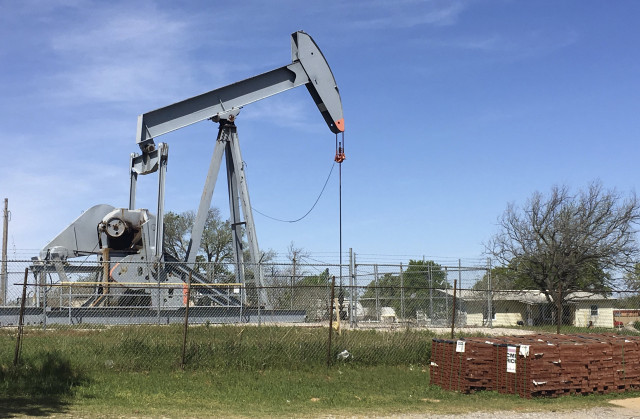Oil climbs on low US output, disruptions at Libyan ports
Both crude contracts rise more than $1 as Gulf producers struggle to restart operations

Oil rose more than 1% on Wednesday as US Gulf of Mexico producers made slow progress in restoring output after Hurricane Ida and protesters blocked exports from two Libyan ports.
Brent was up $1.06, or 1.5%, at $72.75 a barrel at 1340 GMT and US West Texas Intermediate (WTI) crude rose $1.18, or 1.7%, to $69.53 a barrel.
“Oil prices are continuing to find support from the ongoing high production outages in the Gulf of Mexico,” said Commerzbank analyst Carsten Fritsch.
Producers in the Gulf are still struggling to restart operations nine days after Hurricane Ida swept through the region with powerful winds and drenching rain.
About 80% of US Gulf production remained offline on Tuesday, with 79 production platforms still unoccupied. About 17.5 million barrels of oil have been lost to the market so far.
The Gulf’s offshore wells make up about 17% of US output.
“Refinery operations appear to be making a quicker recovery,” ING analysts said in a note.
Only about 1 million barrels per day (bpd) of capacity was temporarily closed, down from a peak of more than 2 million bpd, ING said, citing the latest situation report from the Department of Energy.
“However, those refiners that have restarted are unlikely to be operating at full capacity at the moment,” the note added.
Traders will be closely watching inventory data from the American Petroleum Institute industry group due on Wednesday and the US Energy Information Administration on Thursday for a clearer picture of the storm’s impact on crude production and refinery output.
Analysts polled by Reuters expect, on average, that crude stocks fell by 3.8 million barrels in the week to September 3 and see gasoline stocks down by 3.6 million barrels and distillates down by 3 million barrels.
In Libya, protesters blocked oil exports at the ports of Es Sider and Ras Lanuf, an oil engineer at each port said, although other engineers said production at fields that supply the terminals was unaffected.
Meanwhile, the UN atomic watchdog criticised Iran for stonewalling an investigation into past activities and jeopardising important monitoring work, possibly complicating efforts to resume talks on reviving a nuclear deal.
The negotiations between world powers and Iran have been paused for almost three months since the election of a new president in Iran, reducing prospects of Tehran being able to resume oil exports.
“The Iran factor is therefore likely to be put on the back burner, at least for the time being. Iran is no longer the oil market’s wildcard but expect it to make a comeback in the early part of 2022,” said Stephen Brennock of oil broker PVM.


















COMMENTS
Comments are moderated and generally will be posted if they are on-topic and not abusive.
For more information, please see our Comments FAQ